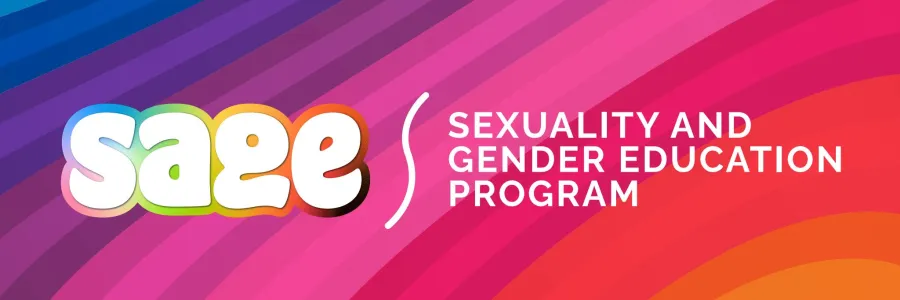By Wyatt Crosher, Communications Coordinator for Student Affairs
The Office of Identity, Equity, and Engagement (IEE) has announced a new sexuality and gender identity education program that strives to bring the University a more welcoming atmosphere where everyone feels respected and part of Niner Nation.
The Sexuality & Gender Education (SAGE) Program, provided by IEE, offers curated educational content specifically for the Charlotte campus community. Its purpose is to educate, encourage and provide support to campus community members who are seeking practical and tangible skills on how to create a more affirming and inclusive space for the LGBTQ+ community.
Through various educational opportunities, students, staff and faculty will learn about current systemic issues impacting the LGBTQ+ community, various terminology and concepts related to the expansion of sexuality and gender identities, while using critical self-reflection as a learning tool to better understand how their professional and personal experiences impact their understanding of identities outside of their own.
Register now for Fall SAGE Faculty & Staff Training Dates offered via Zoom:
- Monday, Oct 17, 1 p.m. to 4 p.m.
- Monday, Nov. 14, 9 a.m. to 12 p.m
- Tuesday, Dec. 6, 9 a.m. to 12 p.m
SAGE replaces the Safe Zone Program with a customized training created by IEE. The initiative is led by Chelsea Ortiz, assistant director for sexual and gender diversity for IEE, and is unique to everything the campus has to offer.
"UNC Charlotte, through IEE, did Safe Zone training for quite some time,” Ortiz said. “But Safe Zone didn't really focus on the University and the resources we have here, and it didn't involve a lot of self-reflection on how departments can enhance the experience for LGBTQ+ students. We wanted to specialize the experience for UNC Charlotte and our campus community."
SAGE allows for training that is more than a one-stop shop when it comes to learning about various sexualities and gender identities. Dr. Brandon Wolfe, associate vice chancellor for diversity and inclusion and chief diversity officer, said that it was important to have trainings that continue to grow with the University.
"This program is not just something where we ‘take this class’ and we ‘check the box.’ It is a commitment to lifelong learning and getting a better understanding of the nuances and the complexities within our LGTBQ+ community,” Wolfe said. “SAGE helps us to better understand our particular biases and challenges in ways in which we can better be allies and advocates for our LGBTQ+ community as we continue to grow and learn at the University."
Under SAGE, there will be a variety of trainings for gaining a greater understanding of various gender and sexual identities. Staff and faculty will have a three-hour training option called “Sexuality & Gender Equity: Foundations,” while students will still have the 90-minute “Friendly Peer Training” option that has been on campus prior to SAGE. More training sessions covering new subject matter will be available.
"As an educational institution, I think it is incumbent upon all of us to learn and understand the various student identities that may come before them,” Dr. Kevin Bailey, vice chancellor for student affairs, said. "I'm just a small piece of this and am happy to provide the space for this to happen, because I think it's the right thing to do."
Christine Reed Davis, associate vice chancellor and dean of students, echoed those sentiments when endorsing the SAGE program.
"I think it just expounds our world view. Taking an opportunity to learn more about gender and sexuality in a way that's different from the way the majority of our population has been socialized is important,” Davis said. “It provides some understanding, awareness and compassion. When a student that walks in with a different sexual or gender identity, then that recipient of the training can have a deeper compassion or a better understanding of how to assist those particular students."
Despite progress, there is still work to do within the University on making a more welcoming campus to all. The SAGE program is not a solution, but is a step in the right direction toward that goal.
“We know that we still have a lot of work to do as a campus community in making this a more equitable space for LGBTQ students, staff and faculty,” Ortiz said. “But what we hope is that, through this training and facilitation, folks start to think about how they can improve the areas in their own life as well."
Read more about SAGE and find out about upcoming training sessions here.
